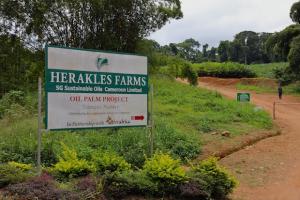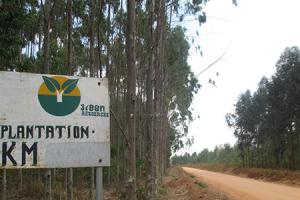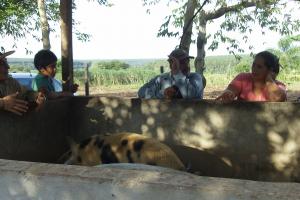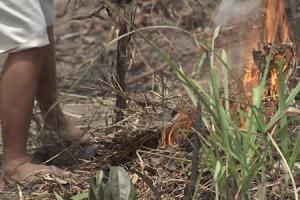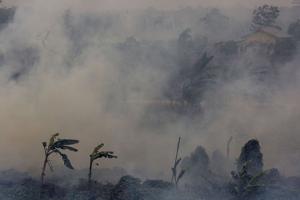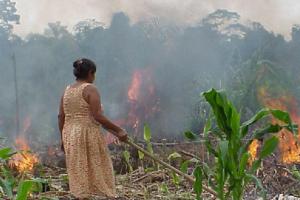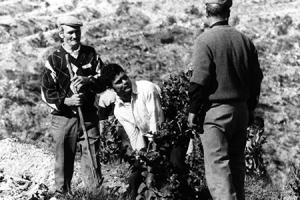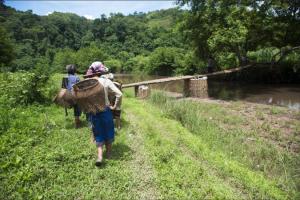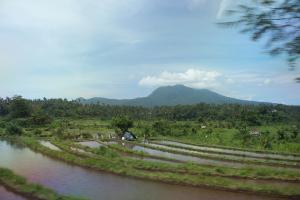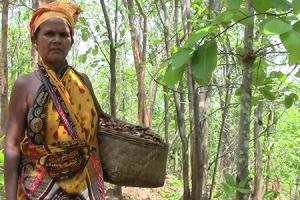Seeds of Hope
“What are the solutions to forest destruction?” “What are the alternatives?” Questions like these are often raised to squash possible debate that could lead to real solutions to deforestation and climate chaos. The way forward starts with ending the assault on forest peoples and their ways of life, and learning about their relationships with their territories. For generations, forest-dependent communities have lived in and with forests, and have protected them.
An interview with the activist Nasako Besingi. He organized communities in their protests against US agribusiness Herakles Farm’s palm oil plantations. Due to this engagement, he has been the victim of Herakles Farm and government physical attacks, intimidation and criminalization. (Available in Swahili).
At first glance, the Nzivi village is a village as many others in the area. But a big difference is that it does not allow investors for large-scale activities, such as monoculture tree plantations. Green Resources is the main private plantation company active in Tanzania. (Available in Swahili).
Over the last ten years, through organization and struggle, families in northeast Argentina have managed to recover land monopolized by multinational corporation Arauco. Now, they are growing food there.
Forest peoples’ knowledge and practices of the use and management of controlled fire in forests have been identified within climate change policies as the cause of forest fires. Nevertheless, fire is critical for ensuring the food and cultural sovereignty of forest peoples.
Today, a capitalist conception of fire dominates. But vernacular conceptions continue to evolve and struggle against it.
Despite that most forest fires in Indonesia started within expanding oil palm plantation concession areas, companies are not being persecuted. (Available in Indonesian).
Fires in the Amazon are occurring more frequently and with greater intensity. But who is really burning the forests?
In 1989, there was a war in the valley of Lila, Portugal. Hundreds of people gathered to destroy 200 hectares of eucalyptus, fearing that the trees would rob them of their water and bring fire.
In solidarity with the International Day of Peasant Struggle. A day to remember, emphasize and mobilize together against the persecution and violence that peasants suffer on a daily basis around the world.
Systems of community organization rooted in sacred beliefs and concepts guide relations in Bali, Indonesia, and help defy agribusiness and mega-tourism.
India’s programme to compensate for the destruction of forests for development projects is routinely setting up monoculture tree plantations on community commons. Women, who are mostly affected, are at the centre of its resistance.
The voices and stories of forest-dependent women are often rejected, unheard or silenced, which makes it easier for companies to grab community land. But what happens when they start to raise their voices?
